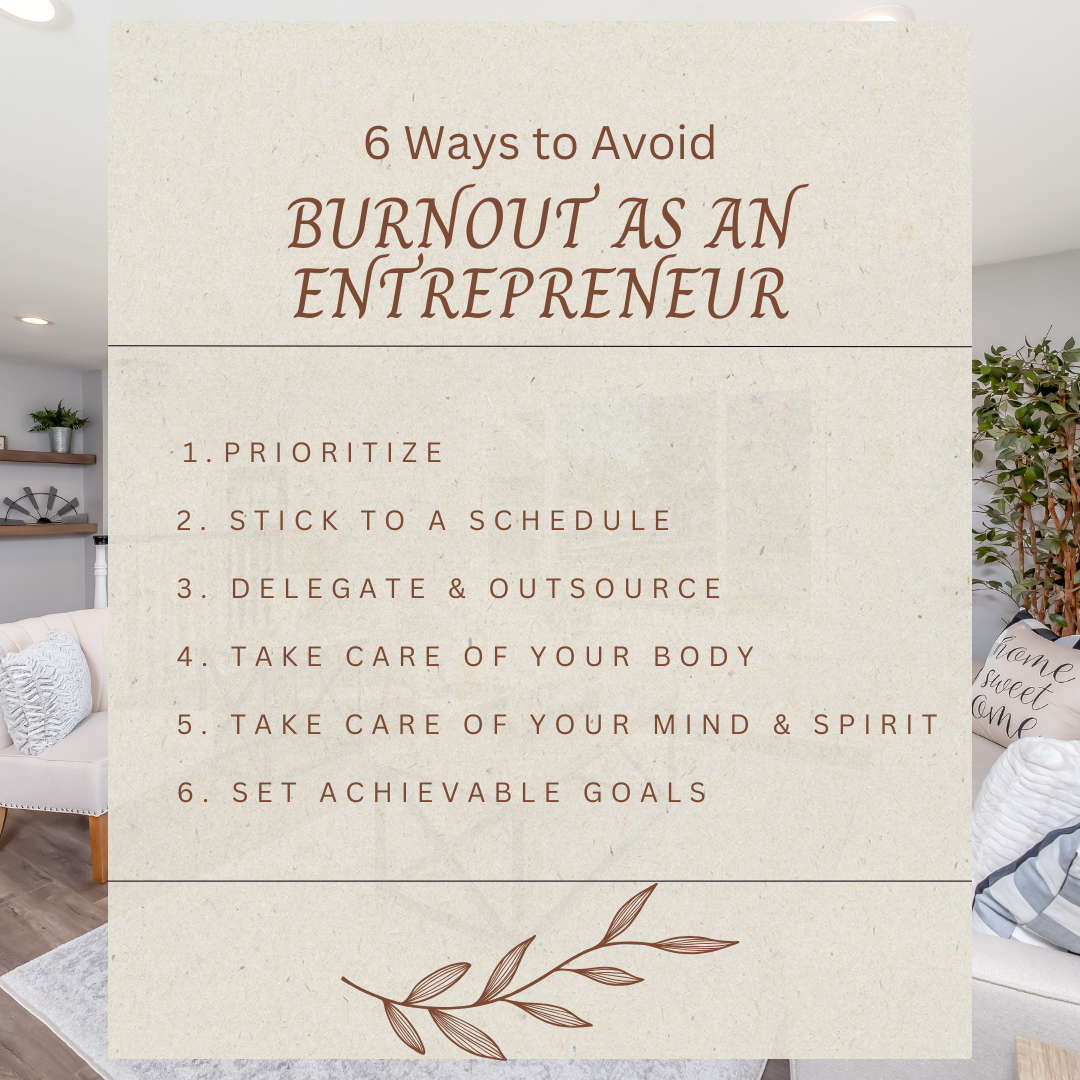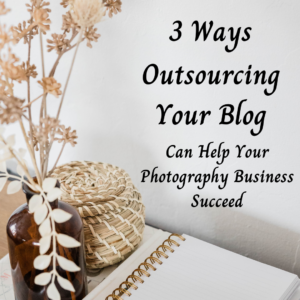Okay, so we’ve talked about how to recognize if you’re in—or maybe approaching—small business owner burnout. We’ve also talked about how to navigate and recover from burnout. And while these things are helping me (and hopefully you!) I’d also love to know how to just avoid this unpleasant stage altogether in the future.
You too?
Great! I’m currently in the navigation and recovery stage, but I’m hoping these tips I’m learning can help me in the future to create a more sustainable business model. If they can help you too—even better.
Here are the things I’m hoping to incorporate more as I get to a better place in my life and business. Keep in mind, you may already know in your head that you should be doing some of these things, but struggle to implement them consistently in real life. I’m the same way!
A lot of these tips are probably not going to be big news, but just serve as a gentle reminder. I’m also learning that I can’t do everything at once—even when it’s things that will help me avoid problems in the future. So take a look at this list and just pick one or two things you can use right now to help you stay in (or get to) a good place.
1. Prioritize
When you feel like your number one priority is to catch up on your workload, it’s a good sign that your number one priority should actually be…to prioritize.
This can be hard for me to do sometimes. I’ll tackle the easy tasks because they’re approachable, not because they’re important. And while there’s nothing wrong with giving yourself some easy wins, doing this all the time can mean that the big stuff piles up, or that you’re using all your time and energy on things that don’t make much difference.
I think the solution to this is to prioritize.
Before you can decide what’s most important and deserving of your energy, you have to figure out: What are all the things you feel like entrepreneurship is demanding of you right now?
For me, it’s things like, hiring someone to redesign my website, experimenting with Facebook ads, getting a few more clients on board, posting to social media three times a week, blogging once a week, writing and optimizing my clients’ blog posts, developing an email newsletter, answering emails, scheduling consultation calls with potential and current clients. The list goes on, but you get the idea.
Once you’ve identified all the stuff clamoring for your attention, prioritization can happen! I used to stick a number next to each item, but I found there was often a lot of overlap. Which is more important, answering emails or scheduling consultation calls? They both need to happen. So I usually use a ranking system now. (Five dots = My business will fall apart if I don’t do this. One dot = This would be nice, but it’s not essential.)
Whenever I take time to prioritize, it helps to relieve just a little bit of the pressure and make me feel more in control. Now I can put the bulk of my time and energy into the stuff that actually matters. If my one, two, or three-dot items don’t get done this week, that’s okay. I can feel more confident knowing that I spent my time on the most important things, even if they didn’t all get done either.
2. Stick to a Schedule
As a small business owner, I sometimes succumb to the hustle culture mentality—even though part of the allure of working for myself was to escape that hustle culture!
But one of the joys of being a small business owner is the flexibility to create a schedule that works for me. I don’t have to use the same nine-to-five model (who are we kidding, more like eight-to-six model) of a traditional job.
However, I do think it’s important to have a clear beginning and end to the workday. Because if I don’t, I find myself thinking about work…All. The. Time.
With a boundary, whether that’s a time boundary (“I knock off at three,” “I work six hours a day,”) or a space boundary (“When I’m at my desk I’m working, when I’m away from my desk it’s time for other things”) then you can actually step away and be done for the day. No guilt. No sweat. Just mission accomplished.
3. Delegate and Outsource
Imagine you had a boss who was all, “You don’t need breakfast. Or lunch. And dinner should be microwaveable. You’d better leave your phone next to your bed so you can respond to all inquiries as soon as they come in. I expect you to flawlessly and singlehandedly manage sales, marketing, research, finances, human resources, production, and anything else I happen to come up with. And if you think I won’t guilt-trip you for every minute you spend thinking about something other than this job you’ve got another thing coming.”
I don’t know about you, but I’d quit.
And yet, if you’re not getting any support in your work, that’s probably the kind of boss you’re being to yourself.
Which brings us back to priorities.
Some of the items on my priority list are things I actually enjoy doing. Others…not so much. And I think that to avoid burnout, you have to shift perspectives sometimes from priority to passion.
Why did you start this business? What do you love about it? What to-dos do you enjoy? Which do you dread?
There are a lot of things that have to be done to keep your business afloat and get it to the growing and thriving stage. But not all of those things have to be done by you.
So, is there anything you can outsource? Even if there’s just one thing—high priority but low passion—that someone else can do for you, having that weight off your mind can make a big difference.
4. Take Care of Yourself Physically
You know the drill: Get enough sleep. Move your body. Stay hydrated. Eat healthy meals. Honestly, with as many times as I’ve heard this, you’d think I’d have it down by now. But when life gets busy, basic physical self-care is one of the first things to get bumped to the bottom of the to-do list.
And that’s a little ironic, because taking care of your body is one of the best things you can do for yourself and your business.
Like I said, you know what to do here, so I’m not going to tell you how many glasses of water a day you should be drinking or anything like that. For me, the biggest takeaway I’m getting as I learn how to take better care of my body is to replace the all-or-nothing mentality with a power-of-littles mentality.
Can you get a solid 8 hours of sleep, wake up and go for a run, come back and eat an amazingly nutritious and well-balanced breakfast, and get 4 glasses of water in, all before you even start your workday?
I know I can’t.
But I can probably do something. I can drink a glass of water when I wake up. I can take a walk around the block when I need a break. I can let myself take a quick power nap if I’m running on empty.
Doing it all really isn’t feasible for me, but I’m learning that I don’t have to. Little choices add up and can help me take care of my body to feel better and avoid burnout.
5. Take Care of Yourself Mentally and Emotionally
We’ve talked about how sometimes physical self-care falls to the bottom of the to-do list. You know what’s even sadder? Mental and emotional self-care often don’t even make the list at all.
Your mind and spirit are just as important as your body. And they need the same consistent, diligent care. If you starved yourself for a week and then ate one really big, healthy meal when you couldn’t stand it anymore—the meal might be healthy, but the lifestyle certainly wouldn’t be. And yet, that’s exactly what we do to ourselves emotionally.
I’m a big proponent of the idea that mental and emotional self-care isn’t just for special occasions, and it isn’t even just for the weekends. It should be an everyday kind of thing, just like drinking water or eating something nourishing.
I’m not going to go into a lot of detail here, mostly because every person is different, and what nourishes my soul may not do the same for yours. But I would encourage us both to do a little something, every day, to take care of mind and spirit. (For me, I’ve noticed that there’s sometimes overlap between this and physical self-care. A walk, for example, is good for my body and also boosts my mood. And, just like physical self-care, little choices add up.)
I’m figuring out that listening to myself and letting myself do something I’m in the mood for at the moment is a good way to do emotional self-care without overthinking it. When I think of it in terms of self-care it can feel overwhelming, like it needs to be special. When I just try to pay attention to my mood, then I’ll think to myself, “It’s such a gray day—it would be nice to have something cozy.” And instead of pushing the feeling away, I take a second to light a candle or make a cup of tea or grab my comfiest pair of socks.
Basically, you don’t have to become a meditation guru to take good care of yourself mentally. You just have to tune in, learn what makes you happy, and make time to do it.
6. Set Goals
Wait a second—doesn’t setting goals just put more on your plate? Surely that’s not a great way to avoid burnout?
Goals can feel like just another to-do. But I’m finding that when I change my mindset, they can actually be a great way to set boundaries and improve my relationship with myself. It’s easier and more productive to tackle a concrete goal than it is to have a vague, nebulous hope (“I want to grow my business”) and then wear myself thin trying any and everything that might possibly help.
Rather than try to “achieve success” (whatever that means) by a scattered, everything-but-the-kitchen-sink approach, goals can help you work smarter and actually make some progress. If you’re lucky, you may find that some of the excitement comes back when you know exactly what you’re trying to accomplish and have a step-by-step plan that allows you to recognize and celebrate each and every success.
Do You Have Favorite Strategies to Avoid Entrepreneur Burnout?
Wherever you’re at in your journey, I hope the final installment of this three-part series on entrepreneurial burnout gave you some tools to try or sparked ideas of your own. If you’ve found any great strategies you rely on to help you avoid small business owner burnout and keep the passion for your work alive, I would truly love to hear about it! Feel free to share in the comments so we can learn together.
All the best, and thanks for reading!



